Black is a racialized classification of people, usually a political and skin color-based category for specific populations with a mid- to dark brown complexion. Not all people considered "black" have dark skin; in certain countries, often in socially based systems of racial classification in the Western world, the term "black" is used to describe persons who are perceived as dark-skinned compared to other populations. It is most commonly used for people of sub-Saharan African ancestry, Indigenous Australians and Melanesians, though it has been applied in many contexts to other groups, and is no indicator of any close ancestral relationship whatsoever. Indigenous African societies do not use the term black as a racial identity outside of influences brought by Western cultures.
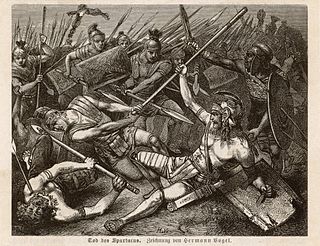
A slave rebellion is an armed uprising by slaves, as a way of fighting for their freedom. Rebellions of slaves have occurred in nearly all societies that practice slavery or have practiced slavery in the past. A desire for freedom and the dream of successful rebellion is often the greatest object of song, art, and culture amongst the enslaved population. These events, however, are often violently opposed and suppressed by slaveholders.

Dred: A Tale of the Great Dismal Swamp is the second popular novel from American author Harriet Beecher Stowe. It was first published in two volumes by Phillips, Sampson and Company in 1856. Although it enjoyed better initial sales than her previous, and more famous, novel Uncle Tom's Cabin, it was ultimately less popular. Dred was of a more documentary nature whereas Uncle Tom's Cabin had much stronger characters.
David Walker was an American abolitionist, writer, and anti-slavery activist. Though his father was enslaved, his mother was free; therefore, he was free as well. In 1829, while living in Boston, Massachusetts, with the assistance of the African Grand Lodge, he published An Appeal to the Colored Citizens of the World, a call for black unity and a fight against slavery.

Denmark Vesey was a free Black and community leader in Charleston, South Carolina, who was accused and convicted of planning a major slave revolt in 1822. Although the alleged plot was discovered before it could be realized, its potential scale stoked the fears of the antebellum planter class that led to increased restrictions on both enslaved and free African Americans.
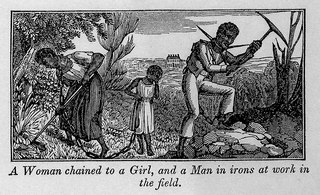
African American history started with the arrival of Africans to North America in the 16th and 17th centuries. Former Spanish slaves who had been freed by Francis Drake arrived aboard the Golden Hind at New Albion in California in 1579. The European colonization of the Americas, and the resulting Atlantic slave trade, led to a large-scale transportation of enslaved Africans across the Atlantic; of the roughly 10–12 million Africans who were sold by the Barbary slave trade, either to European slavery or to servitude in the Americas, approximately 388,000 landed in North America. After arriving in various European colonies in North America, the enslaved Africans were sold to white colonists, primarily to work on cash crop plantations. A group of enslaved Africans arrived in the English Virginia Colony in 1619, marking the beginning of slavery in the colonial history of the United States; by 1776, roughly 20% of the British North American population was of African descent, both free and enslaved.
Wyatt Tee Walker was an African-American pastor, national civil rights leader, theologian, and cultural historian. He was a chief of staff for Martin Luther King Jr., and in 1958 became an early board member of the Southern Christian Leadership Conference (SCLC). He helped found a Congress for Racial Equality (CORE) chapter in 1958. As executive director of the SCLC from 1960 to 1964, Walker helped to bring the group to national prominence. Walker sat at the feet of his mentor, BG Crawley, who was a Baptist Minister in Brooklyn, NY and New York State Judge.
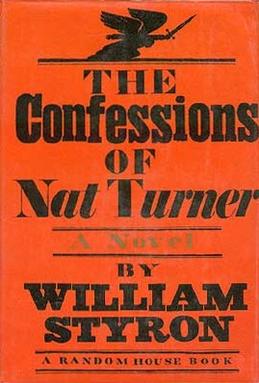
The Confessions of Nat Turner is a 1967 Pulitzer Prize-winning novel by American writer William Styron. Presented as a first-person narrative by historical figure Nat Turner, the novel concerns Nat Turner's slave rebellion in Virginia in 1831, but does not always depict the events accurately. It is based on The Confessions of Nat Turner: The Leader of the Late Insurrection in Southampton, Virginia, a first-hand account of Turner's confessions published by a local lawyer, Thomas R. Gray, in 1831.
Swart gevaar was a term used during apartheid in South Africa to refer to the perceived security threat of the majority black African population to the white South African government. It was used by the Herenigde Nasionale Party in the 1948 general election to promote the Sauer Commission's recommendation of apartheid.
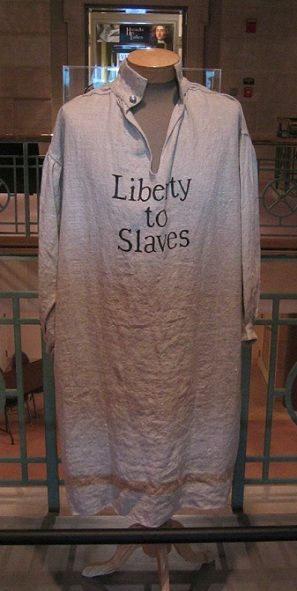
Black Loyalists were African-Americans who sided with the Loyalists during the American Revolutionary War. In particular, the term refers to men who escaped enslavement by Patriot masters and served on the Loyalist side because of the Crown's guarantee of freedom.
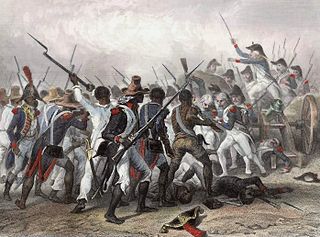
Nat Turner's Rebellion, historically known as the Southampton Insurrection, was a rebellion of enslaved Virginians that took place in Southampton County, Virginia, in August 1831. Led by Nat Turner, the rebels killed between 55 and 65 White people, making it the deadliest slave revolt for white people in U.S. history. The rebellion was effectively suppressed within a few days, at Belmont Plantation on the morning of August 23, but Turner survived in hiding for more than 30 days afterward.

Indian South Africans are South Africans who descend from indentured labourers and free migrants who arrived from British India during the late 1800s and early 1900s. The majority live in and around the city of Durban, making it one of the largest ethnically Indian-populated cities outside of India.

The term social apartheid has been used to describe various aspects of economic inequality in Brazil, drawing a parallel with the legally enforced separation of whites and blacks in South African society for several decades during the 20th-century apartheid regime.
Black suffrage refers to black people's right to vote and has long been an issue in countries established under conditions of black minorities as well as, in some cases black majorities.

Medical Apartheid: The Dark History of Medical Experimentation on Black Americans from Colonial Times to the Present is a 2007 book by Harriet A. Washington. It is a history of medical experimentation on African Americans. From the era of slavery to the present day, this book presents the first detailed account of black Americans' abuse as unwitting subjects of medical experimentation.
White backlash, also known as white rage or whitelash, is related to the politics of white grievance, and is the negative response of some white people to the racial progress of other ethnic groups in rights and economic opportunities, as well as their growing cultural parity, political self-determination, or dominance.

Slavery played the central role during the American Civil War. The primary catalyst for secession was slavery, especially Southern political leaders' resistance to attempts by Northern antislavery political forces to block the expansion of slavery into the western territories. Slave life went through great changes, as the South saw Union Armies take control of broad areas of land. During and before the war, enslaved people played an active role in their own emancipation, and thousands of enslaved people escaped from bondage during the war.

The Colored Patriots of the American Revolution, With Sketches of Several Distinguished Colored Persons: To Which is Added a Brief Survey of the Conditions and Prospects of Colored Americans, or, in brief, The Colored Patriots of the American Revolution, is an American history book written by William Cooper Nell, with an introduction by Harriet Beecher Stowe. It was published in 1855 by Robert F. Wallcut. It focuses on African-American soldiers during the American Revolution and the War of 1812. It details "the services of the Colored Patriots of the revolution".
Afrophobia, Afroscepticism, or Anti-African sentiment is prejudice, hostility, discrimination, or racism towards people and cultures of Africa and the African diaspora.
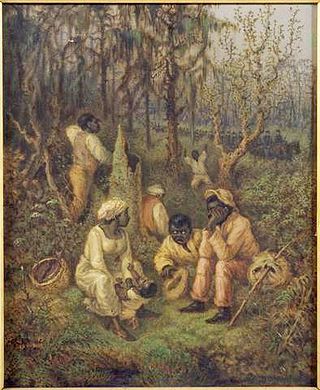
The Chesapeake rebellion of 1730 was the largest slave rebellion of the colonial period in North America. Believing that Virginian planters had disregarded a royal edict from King George II which freed slaves, two hundred slaves gathered in Princess Anne County, Virginia, in October, electing captains and demanding that Governor Gooch honor the royal edict. White planters stopped these meetings, arresting some slaves and forcing others to flee. Although hundreds of slaves fled to the Great Dismal Swamp, they were immediately hunted down by the authorities and their Pasquotank allies.













